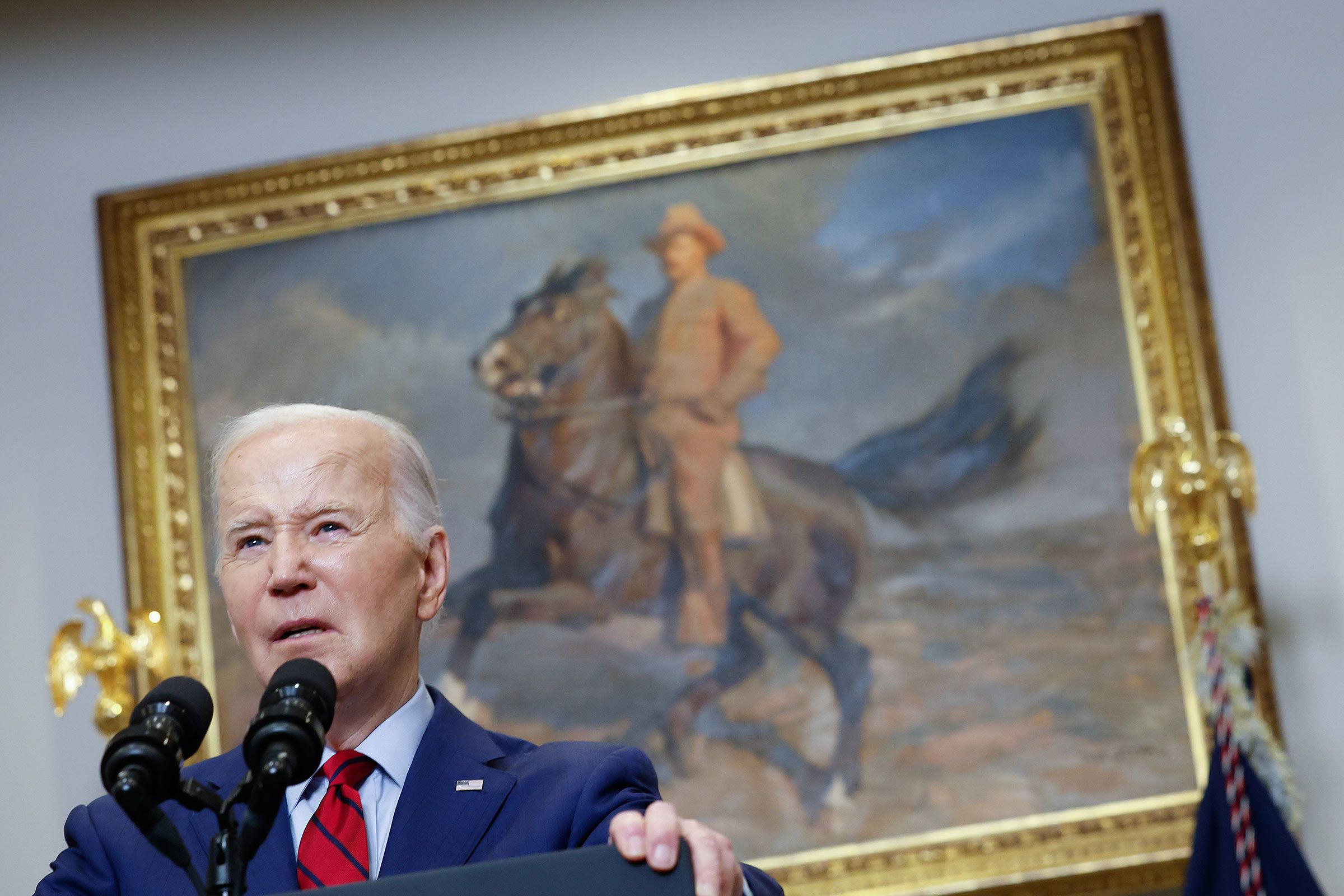President Joe Biden faces a precarious political situation as nationwide college campus protests, sparked by the civilian casualties in Israel’s war in Gaza, threaten to escalate into a summer of discontent. This could potentially culminate in a heated Democratic National Convention in August and spill over into the final weeks of his already contentious battle with Donald Trump.
On Thursday, Biden broke his silence on the issue, making his first on-camera comments. While the current protests are not as widespread as the civil rights and anti-Vietnam War protests of the 1960s and 1970s, they still pose a significant challenge to the president. Biden, in his address, sought to remind the nation of its core principles and the citizens’ duty to uphold them, emphasizing the importance of peaceful protest and respect for the rule of law.
However, Biden’s speech was a delicate balancing act. He must avoid further alienating young, progressive voters who are critical of his handling of the Gaza war, while also ensuring that moderate voters are not swayed by Trump’s claims of a country spiraling out of control. Biden’s position is further complicated by his lack of personal involvement in the Vietnam-era activist movement, which may distance him from the current wave of protests.
Despite these challenges, Biden also sought to connect with a silent majority of Americans who crave stability and helped him secure the Democratic nomination in 2020. He is betting on his understanding of America, hoping it surpasses that of Trump, the activists, and the extremists emboldened by the Gaza war.
The Gaza protests have exposed a vulnerability in Biden’s reelection campaign. He is already struggling to engage younger voters, who typically lean Democratic. The war in Gaza, which has resulted in over 34,000 civilian deaths according to the Gaza Health Ministry, has caused a shift in American politics. A younger generation is empathizing with Palestinians, breaking with their traditionally pro-Israel elders.
Senator Bernie Sanders warned that Biden could face a similar fate to President Lyndon Johnson, who saw his support base fracture over the Vietnam War and student protests. Johnson was forced to abandon his reelection bid. Biden’s political ally, South Carolina Rep. Jim Clyburn, agreed with Sanders’ assessment, calling it a “good argument.”
However, Sanders’ analogy is not a perfect one. The Vietnam War involved American troops on the ground and resulted in nearly 60,000 American deaths. The Israel-Hamas war, on the other hand, does not involve American troops on the ground in Gaza and has not resulted in mass American casualties. This may explain why the Israel-Hamas war is not a top concern for young Americans, according to recent polls.
Despite the challenges, Biden remains resolute. He took a clear shot at his 2024 election foe, who has been demanding the deployment of the National Guard to quell protests. “We are not an authoritarian nation where we silence people or squash dissent,” Biden said. “The American people are heard,” he added. But whether his political base begins hearing him may determine the fate of his reelection hopes.

